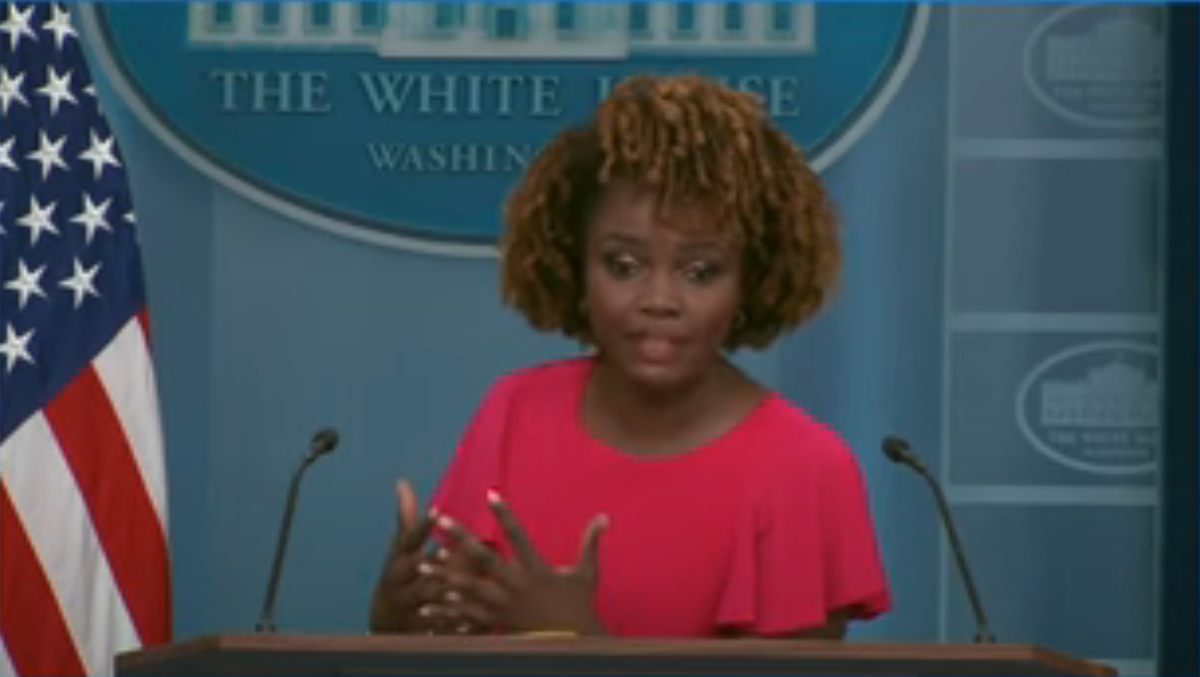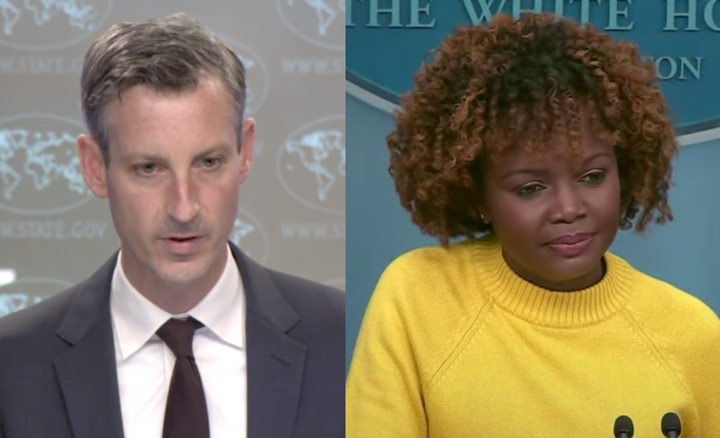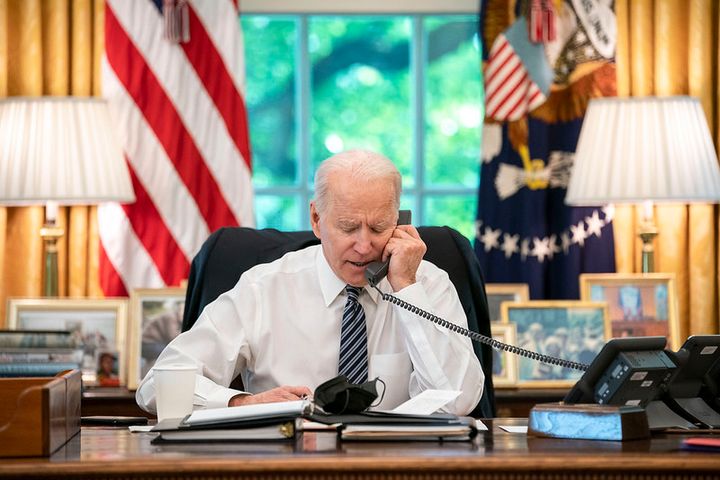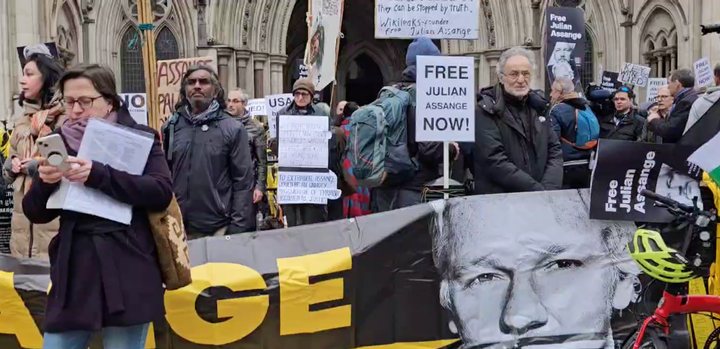Biden Administration Won't Say Whether They Support Federal Shield Law For Journalists
In January, the House of Representatives passed a law to protect journalists. How come the White House doesn't want to talk about it?

The White House has refused to say whether President Joe Biden supports a federal shield law for journalists that would protect them from having to reveal their confidential sources.
In January, the Protect Reporters from Exploitative State Spying Act, or the PRESS Act, passed in the United States House of Representatives.
The legislation would “prohibit the federal government from compelling journalists and providers of telecommunications services to provide information identifying a source or any other record obtained or created by journalists in the course of their work,” according to a House Judiciary Committee report.
Several U.S. news media organizations, like the New York Times and the Washington Post, support the proposed shield law. A coalition of civil liberties, human rights, and press freedom organizations led by the Freedom of the Press Foundation (FPF) have also backed the legislation.
During a White House press briefing on April 4, Steven Nelson of the New York Post asked White House Press Secretary Karine Jean-Pierre about press freedom, including the Espionage Act case against WikiLeaks founder Julian Assange.
“Our government appears to be closer to potentially extraditing Julian Assange. Press freedom groups say that the case threatens to criminalize our profession,” Nelson declared. “So, I’m wondering what the White House’s thinking is regarding that matter and the potential threat to press freedom.”
“And does the White House have a stance on the pending federal press shield legislation that passed the House and that Senator [Chuck] Schumer told me he hopes reaches President [Joe] Biden’s desk this year?”
While focused on dodging the part of the question involving Assange, Pierre responded, “You’re talking about the PRESS Act, more specifically?” Then she went on to offer a platitude, as she is paid to do.
"Look, and I said this—I’ve said this many times. I said this last week—where journalism is not a crime. We’ve been very clear about that,” Pierre stated.
Pierre also said that she had not reviewed the PRESS Act and “would have to talk” to the White House’s Office of Legislative Affairs to speak about “that particular legislation.”
Back in March, Nelson asked the White House to comment on the PRESS Act. As Nelson, no spokespeople immediately responded to “The Post’s request for comment on Biden’s position on the bill.”
Nelson asked Pierre again. “Before moving on, just to confirm. No stance yet on the PRESS Act that you’re aware of? And the Assange matter—is there a concern about that and its implications?”
“I don’t have much more to share besides what I just laid out here. So, I’ll just leave it as what I just stated to you,” Pierre replied.
Nelson quickly mentioned that Assange has been in Belmarsh prison for five years, however, Pierre moved on to another question.
Democratic Senate Majority Leader Chuck Schumer told Nelson in early March that he was “hopeful” that the PRESS Act would pass in 2024.
He said that he would have to talk to some of his Senate colleagues about the legislation, but that he believed “this bill could pass with bipartisan support.”
“I’ve always been a supporter of the shield law. I was one of the authors of the original shield law,” Schumer added.
It is astonishing that the Biden administration would be so cagey when the Democratic Senate majority leader has said that he hopes to pass the federal shield law. The fact that the White House is avoiding the question of whether U.S. journalists deserve protection suggests that administration officials may not support the bill.
In October 2022, as Pierre mentioned, Attorney General Merrick Garland and the Justice Department established a policy that was intended to protect news media from “certain law enforcement tools and actions that might unreasonably impair newsgathering.” It was a response to news reports about abuses of subpoena power under President Donald Trump.
But if a federal shield law is not passed, then that policy could easily be repealed by a future presidential administration.
Pierre would like journalists to believe that Biden “strongly supports the right of [the] free and independent press.” She even maintained that the Biden administration admires the “courage of the free press.”
These are meaningless words if the Biden administration will not support legislation that could ensure journalists have some protection from unjustifiable government intrusion.
Furthermore, it is shameful that the White House continues to talk about journalism not being a crime while dodging questions from reporters about Assange in the same breath.
Below is a clip of the exchange between White House Press Secretary Karine Jean-Pierre and Steven Nelson of the New York Post.




Comments ()